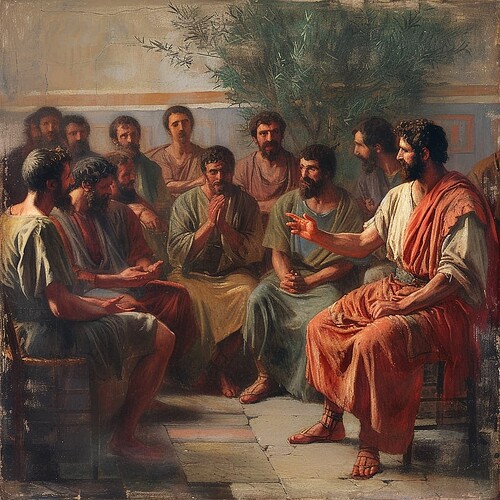![]() February 28: 1 Corinthians 12, 13 - Unveiling Spiritual Gifts and Love Agape
February 28: 1 Corinthians 12, 13 - Unveiling Spiritual Gifts and Love Agape
![]() Introduction
Introduction
Today, we delve into two powerful chapters in 1 Corinthians that teach us about the diversity of spiritual gifts and the highest virtue - Love.
![]() 1 Corinthians 12: Spiritual Gifts & Body of Christ
1 Corinthians 12: Spiritual Gifts & Body of Christ
In this chapter, Apostle Paul explains that while spiritual gifts vary, each is given by the same Spirit. He uses the analogy of a body to illustrate how each gift contributes to the overall function of the Church.
![]() Key Verse: “Now there are various kinds of gifts, but the same Spirit.” (1 Corinthians 12:4 WWB)
Key Verse: “Now there are various kinds of gifts, but the same Spirit.” (1 Corinthians 12:4 WWB)
![]() 1 Corinthians 13: The Supremacy of Love
1 Corinthians 13: The Supremacy of Love
Known as the ‘Love Chapter’, Paul extols the preeminence of love. Regardless of the gifts and good deeds, without love, they amount to nothing. Love is patient, kind, never envious, never rude, and never keeps a record of wrongs.
![]() Key Verse: “But now faith, hope, and love remain—these three. The greatest of these is love.” (1 Corinthians 13:13 WWB)
Key Verse: “But now faith, hope, and love remain—these three. The greatest of these is love.” (1 Corinthians 13:13 WWB)
![]() Key Themes and Reflections
Key Themes and Reflections
Two central themes from these chapters include the importance of each member in the body of Christ and the supremacy of love. We are reminded that each one of us, regardless of our gifts, play a crucial role in the Church - each role as significant as the other. Additionally, love is uplifted as the greatest virtue, surpassing even faith and hope.
![]() Today’s Application
Today’s Application
In a divided world, 1 Corinthians 12 and 13 remind us to utilize our unique gifts to serve our communities and to do so in love. Valuing diversity and leading with love is not just applicable in the Church but in all aspects of life.
![]() Hidden Gem
Hidden Gem
While 1 Corinthians 13 is often read during weddings, its primary context is about love within the Christian community, challenging us to embody this divine love in our relationships.
![]() Reflective Q&A
Reflective Q&A
![]() What can we learn from the body analogy in 1 Corinthians 12?
What can we learn from the body analogy in 1 Corinthians 12?
A: We learn the importance of unity in diversity and the value of every member in a community.
![]() How does 1 Corinthians 13 redefine love?
How does 1 Corinthians 13 redefine love?
A: It paints love not just as an emotion but a conscious commitment to patience, kindness, and forgiveness.
![]() Join the Discussion
Join the Discussion
Share how these teachings have influenced your understanding of spiritual gifts and love.
![]() See You Tomorrow in 1 Corinthians 14.
See You Tomorrow in 1 Corinthians 14.
Stay tuned as we continue zigzagging through Apostle Paul’s letters! May love and unity seasoned with our unique gifts be our guide, today and always.
